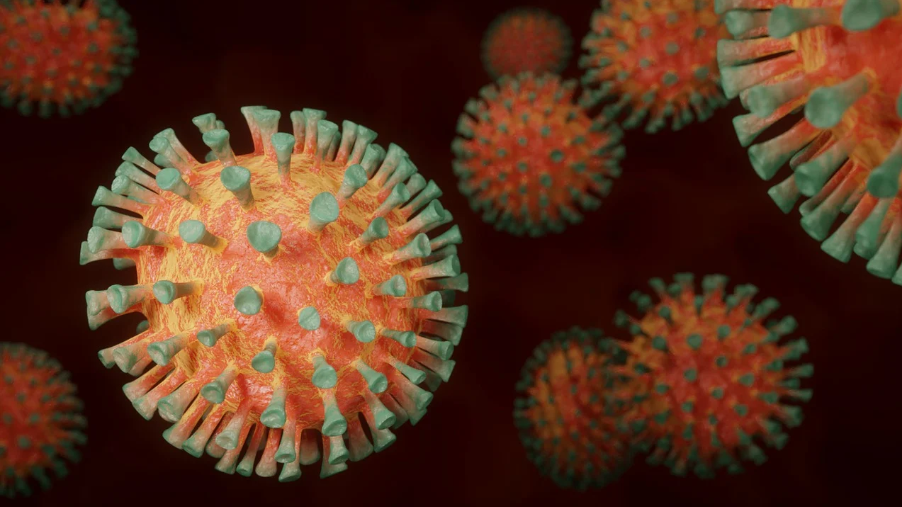(pixabay/image)
The COVID-19 epidemic has triggered a global economic downturn, with developing countries being particularly severely affected. While China's anti-epidemic aid has played a huge role, it has also triggered thinking: How can international anti-epidemic aid be done better?
Total words2065About5minutes
Author: Zeng Lu
On October 9, 2020, China and the Global Alliance for Vaccines and Immunization signed an agreement to officially join the "COVID-19 Vaccine Implementation Plan" (hereinafter referred to as COVAX). President Xi Jinping promised at the World Health Assembly in May this year: China will contribute to the accessibility and affordability of the COVID-19 vaccine in developing countries after it is developed and put into use. China's joining COVAX is an important step to further fulfill its commitment to making vaccines a global public good.
COVAX aims to ensure fair and equitable access to vaccines for all countries
COVAX, co-led by the Global Alliance for Vaccines and Immunization (Gavi), the Coalition for Epidemic Preparedness Innovations (CEPI) and the World Health Organization (WHO), aims to accelerate the development and production of COVID-19 vaccines and ensure fair and equitable access to every country in the world ensure local access to vaccines, especially ensuring that poor countries also have fair access to COVID-19 vaccines. COVAX will support the research, development and production of a wide range of COVID-19 vaccine candidates and negotiate their prices. Once developed, all participating countries, regardless of income level, will have equal access to these vaccines. COVAX aims to deliver 2 billion vaccine doses by the end of 2021 to protect high-risk and vulnerable populations as well as frontline health care workers.
COVAX consists of two parts: the COVAX project, which is open to all economies, and the Advance Market Commitment Mechanism (AMC), which supports low-income economies. The main role of the COVAX project is to expand the opportunities for citizens of participating countries to obtain COVID-19 vaccines as quickly, fairly and safely as possible. Participating countries have access to the world's largest and most diverse COVID-19 vaccine portfolio held by COVAX. Advance Market Commitment is an independent financing mechanism to support the use of COVID-19 vaccines in low-income economies. By raising official development assistance from donor countries, as well as donations from the private sector and philanthropy, it helps low- and middle-income countries that cannot afford COVID-19 vaccines obtain vaccines. Thus making it possible for all countries to participate.
COVAX is the global solution to the pandemic
Developing a vaccine against the new coronavirus is the most urgent challenge in the world at this stage. The COVID-19 pandemic has created a global health crisis and severely impacted the economy. As of October 2020, more than one million people around the world have died from the COVID-19 epidemic, and the number of people infected has reached more than 37 million. Affected by the epidemic, global GDP is expected to shrink by 5.2% in 2020, which will be the most serious global economic recession in decades. The World Health Organization said that equitable global access to vaccines, especially protecting medical staff and high-risk groups, is the only way to mitigate the public health and economic impact of the epidemic.
COVAX is the global solution to the COVID-19 pandemic and could be the main way for poor countries to get vaccines. At present, COVAX has made gratifying progress. As of October 2020, 172 countries and economies representing two-thirds of the world's population have joined COVAX, 76 of which are countries with good economic conditions and can obtain vaccines by raising their own funds. Funders including the European Union, the United Kingdom, Japan and the Gates Foundation have committed $1.8 billion to COVAX. COVAX will be the main hope for access to COVID-19 vaccines for low-income countries that cannot afford the vaccines and for citizens of rich countries that have not reached purchase agreements with pharmaceutical companies.
COVAX faces many challenges
While COVAX has high hopes, it also faces many challenges. First, the funding gap may weaken the implementation of COVAX. COVAX has supported the development of nine vaccine candidates, eight of which are already in clinical trials. However, the vaccine research and development and advance market commitment mechanism still faces a gap of US$200 million before the end of 2020. Second, the absence of major countries such as the United States may result in COVAX lacking funding and political guarantees. Although countries such as the European Union, Japan and the United Kingdom have joined COVAX, they have signed separate vaccine purchase agreements with pharmaceutical companies, and only use COVAX to ensure that they receive additional vaccine doses based on the agreement. Third, COVAX faces challenges in reaching its vaccine acquisition target in 2021. COVAX strives to purchase enough vaccines in 2021 to cover 20% of the key populations in developing countries. However, a large number of vaccines in 2021 have been reserved by rich countries, so COVAX may be forced to delay its goal.
China's accession will accelerate COVAX's goals
First, China’s participation will strengthen COVAX. Due to the absence of the United States, China became the largest economy to join COVAX. China will purchase vaccines for about 1% of its population through COVAX, expanding COVAX’s early financial support to help it reach deals with vaccine manufacturers. President Xi Jinping’s US$2 billion anti-epidemic donation pledge in May this year may contribute to COVAX’s advance market commitment mechanism.
Second, vaccines developed in China are expected to enrich COVAX’s vaccine portfolio. There are currently 10 new coronavirus vaccine candidates entering the third phase of clinical trials around the world, four of which are from China's National Biotechnology Group, Sinovac Biologics and CanSino Biologics. These four vaccines have already begun Phase III trials in countries such as the United Arab Emirates, Brazil, and Indonesia. Chinese vaccines that ultimately pass WHO's technical evaluation and reach a price agreement will enter COVAX's vaccine portfolio.
Third, China’s manufacturing capabilities will strongly support COVAX in achieving its vaccine supply goals. Since most of the world's vaccine supplies next year have been reserved by developed countries, COVAX's goal of obtaining 2 billion doses of vaccines in 2021 will face challenges. The National Health Commission estimates that China's COVID-19 vaccine production will reach 610 million doses by the end of this year and will exceed 1 billion doses by 2021. Since the COVID-19 epidemic has been effectively contained in China, Chinese vaccine manufacturers will have sufficient production capacity to provide vaccines to developing countries as a priority.
China will benefit from joining COVAX
First, joining COVAX sends a signal of support for multilateralism and enhances China’s international image. When the United States refuses to join COVAX, China, as the world's second largest economy, will effectively promote this major global public health initiative. After participating in the G20 "Debt Service Suspension Initiative for the Poorest Countries", this is China's second initiative to participate in an important multilateral initiative, sending a strong signal to the world that China supports multilateralism. Joining COVAX will also demonstrate to the world China's international image of actively fulfilling its commitment to making vaccines a global public good. If Chinese vaccines are successfully provided to poor countries through COVAX, it will enhance China's international credibility and the value of Made in China.
Secondly, joining COVAX will broaden the access of vaccines developed and produced in China to the international market. Several vaccines developed in China have received overseas orders before they were officially put into production. However, strict laws and regulations in the vaccine field in Europe, the United States and other countries may become barriers to China's vaccine exports. China's joining COVAX will streamline the channel for Chinese vaccines to enter the COVAX candidate vaccine review process. If the Chinese vaccine passes the review of vaccine safety and effectiveness by the World Health Organization and other institutions, reaches a consensus on price with COVAX, and joins the COVAX candidate vaccine portfolio, it can enter more countries and regions through COVAX, an important global platform.
This article was first published on the WeChat public account "International Development Observation". All rights reserved, please indicate the author and source when reprinting.

